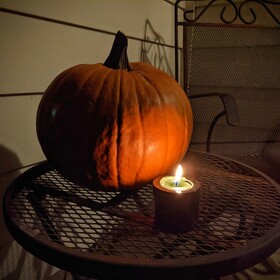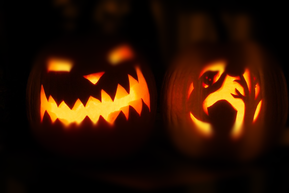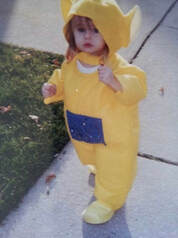 by Ellen Lewis It was that time of year. I snuggled up on my sofa with my fuzzy blanket, seasonal coffee, and warmed up pumpkin muffin. I opened a brand new horror novel, and suddenly...it was all wrong! Sure, I was eating fall foods and reading a spooky story, but I wasn’t in the right mood. It took me a minute to realize that the pumpkin muffin was making me feel warm and cozy, not ready to read about blood and monsters. As you sit down to read your favorite type of book, are you indulging in the correct food or drink—the one that will set the mood for your reading and not pull you out of it? Consider giving these suggestions a try to bring your reading experience to the next level. Embrace different genres by using food and drink to transport you to another world.
1 Comment
by Scott MacLean  via Unsplash via Unsplash Can you name one gay superhero? I can’t. How about a wizard? Warrior? Villain? The sad fact of the matter is that I’ve read over two hundred young adult fantasy books and I know of only one that has a main character that’s gay. Now I know what you’ll say, media and literature is much more inclusive these days, which is true. According to a 2019 report done by GLAAD, the percentages of LGBTQ representation are at an all time high, and I’ll be the first to admit that it’s nice to have more options, especially in literature, but why hasn’t this translated to fantasy and other genres? I’m glad I can watch a show like Schitts Creek or read a book like The Gravity of Us by Phil Stamper, examples of quality LGBTQ stories that aren’t entirely centered on the fact that the characters are gay, but unfortunately, kids aren’t dressing up as Kurt Hummel from Glee on Halloween. They’re dressing up as Harry Potter, Daenerys Targaryen, or Harley Quinn, heroes from epic stories full of adventure.  Image provided by kylewagaman License CC BY-NC-SA 2.0 Source Flickr Image provided by kylewagaman License CC BY-NC-SA 2.0 Source Flickr by Elizabeth Mosolovich Halloween is a time for tricks and treats, when children--and some adults--run about in costume going door to door and asking for candy. Stories of monsters, ghosts, and witches become easier to believe as people decorate their houses with jack-o-lanterns, cobwebs, and gravestones. There are plenty of ways to get into the spirit of this holiday, including watching movies like Friday the 13th, or the more kid-friendly It’s the Great Pumpkin, Charlie Brown, as well as reading books like the old classic such as The Legend of Sleepy Hollow by Washington Irving or a new favorite like Scary Stories to Tell in the Dark by Alvin Schwartz. But Halloween is not for everybody. Though the holiday has become rather secularized, its origins are a mixture of pagan harvest festivals and the Roman Catholic feast days All Saints’ and Souls’ Days; therefore some Orthodox Jews and Muslims do not celebrate the holiday. Other Christian groups also refrain from partaking in Halloween festivities, as they dismiss the day because of its partially pagan beginnings and fear that celebrating Halloween equals celebrating witchcraft or Satanism. And those attitudes are fine--everyone is entitled to their opinion and to practice their religious beliefs freely. However, when these religious beliefs, especially fears about the occult and witchcraft, involve suppressing people’s access to literature, it becomes a problem.  Via Pixabay Via Pixabay by Megan Kiger So, I’d call myself a liar. Used-to-be outstanding liar, but maybe just above average now. My intentions are never anything more than comedic (or dramatic) relief. We all love drama, and we all lie about that too. When I was little, I’d come up with intricate stories to cover my ass when I was in trouble or embarrassed (or just to make things interesting, you know?). I had a crush on a boy named Zach when I was ten. He had this ashy kind of blond hair and green eyes that I was obsessed with. I asked him if he wanted to swing with me at recess and he said no. He actually pretty rudely refused and laughed at me with his friends. I remember my throat swelling while I tried to keep the hysterics contained to my stomach.  by Rachel Barton While I was growing up, my mother made all of my Halloween costumes. Since she was a seamstress, she took this opportunity to go all out and produce works of art. For my first Halloween, I was a tiny bride with a complicated wedding dress. Throughout the years, I dressed as a Teletubby with a light up belly, Tom and Jerry in one costume, and a princess turned ninja. Each year, my mom would ask me what I wanted to be. When I was nine, I stumped her. |
Archives
July 2024
Categories
All
|
|
Glassworks is a publication of Rowan University's Master of Arts in Writing 260 Victoria Street • Glassboro, New Jersey 08028 [email protected] |
All Content on this Site (c) 2024 Glassworks
|

 RSS Feed
RSS Feed
